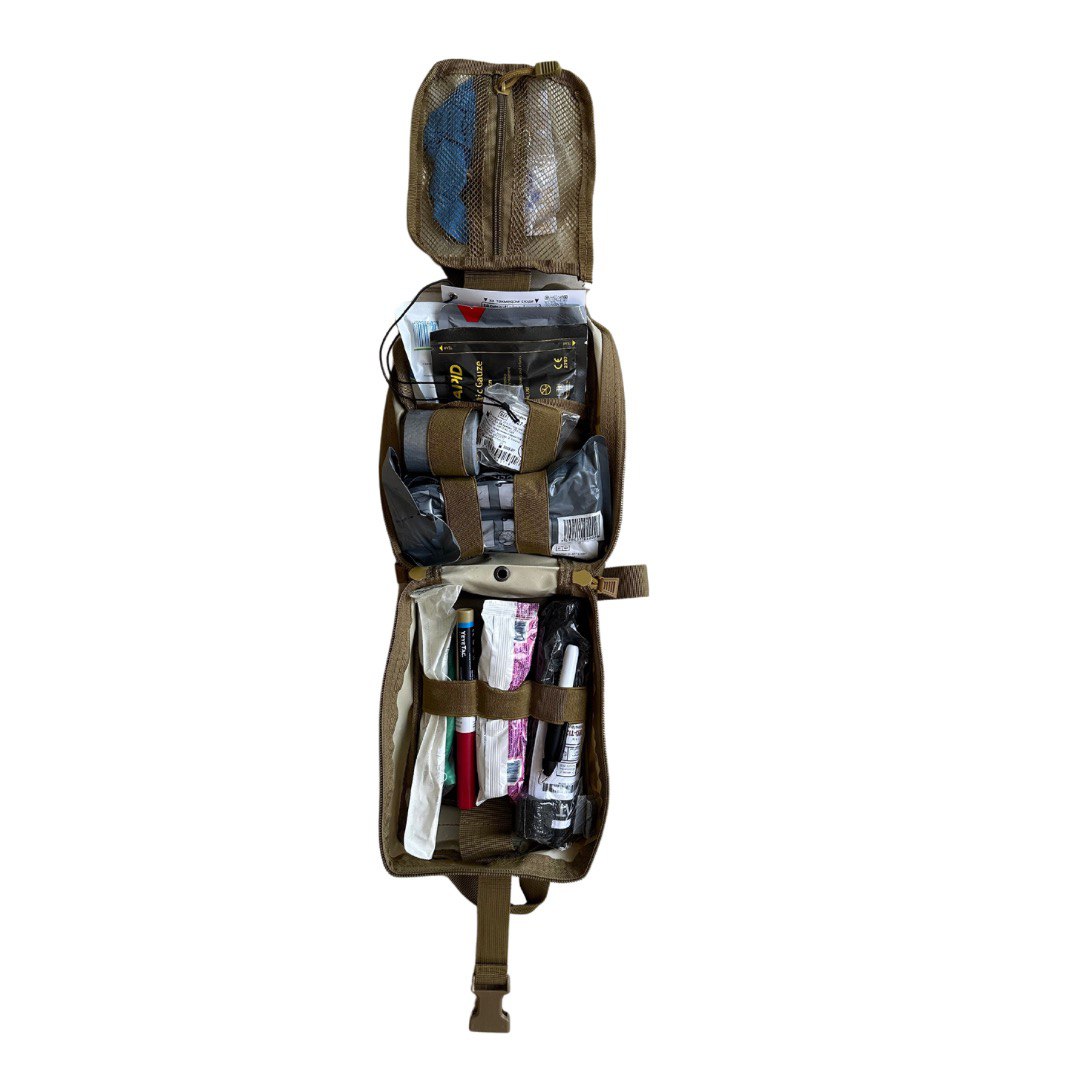Causes and symptoms of dehydration in combat conditions
Content
- What is dehydration (dehydration)?
- Causes of dehydration
- Symptoms
- Degrees of dehydration
- I degree
- II degree
- III degree
- Dehydration among the military
- First aid for dehydration in extreme conditions
- The consequences of dehydration
- Conclusion
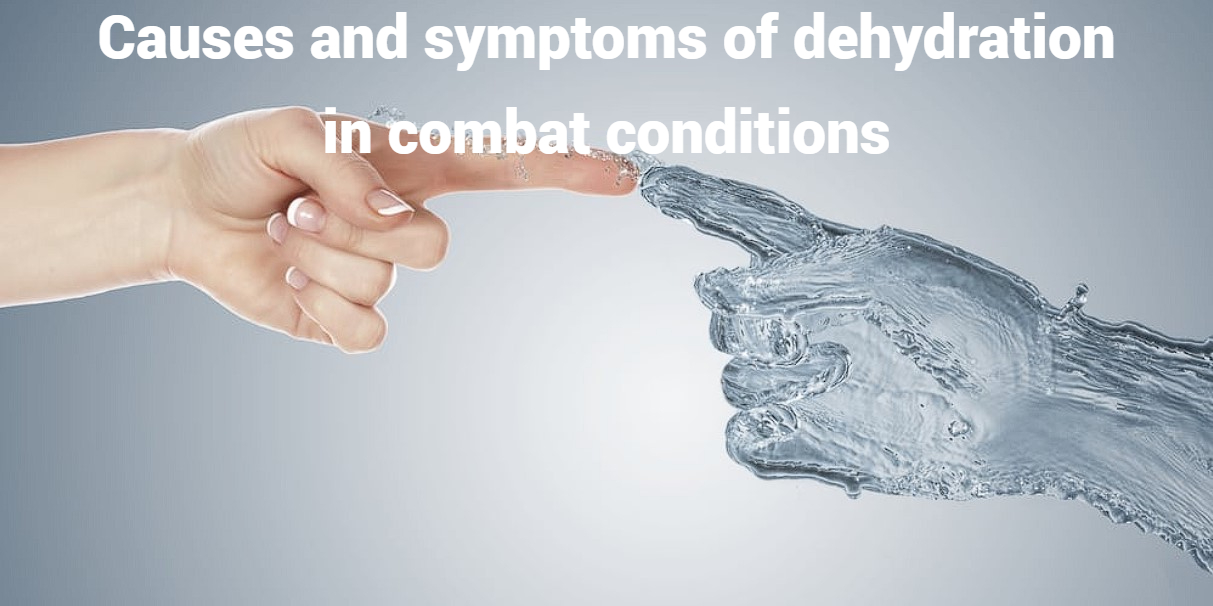
In combat situations, dehydration becomes a serious problem that can significantly affect the ability of soldiers to perform their duties. Dehydration is not a disease in itself, but rather a manifestation or part of a symptomatic picture that is caused by a variety of factors.
During war, the body is often exposed to extreme temperatures, physical exertion and lack of water and food, which contributes to the development of this condition. In addition, age-related factors can also affect the susceptibility to dehydration.
Understanding the causes and symptoms of dehydration in combat is key to timely detection and effective response, which will ensure the health and endurance of the military during their service missions.i
What is dehydration (dehydration)?
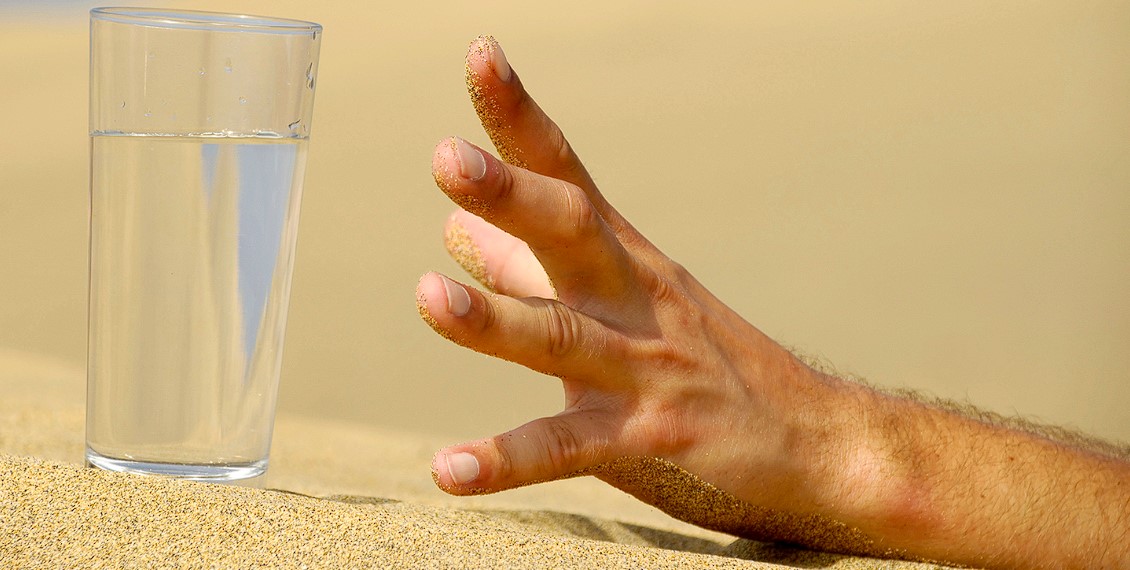
Dehydration, or dehydration, is a condition in which the human body is deficient in water. When the body loses more fluid than it takes in, it becomes dehydrated. Water makes up approximately two-thirds of a person's body weight and is vital for normal functioning. Without enough water, physiological processes occurring at all levels - from cellular to tissue - are disrupted.
Water in the body is present in the blood, intercellular space and in every cell of organs and tissues. Its deficiency, even at the level of 1% of the total body weight, can cause the first symptoms of discomfort and disruption of physiological processes. When water loss reaches 20-25%, it leads to critical disorders that are incompatible with life.
Thus, dehydration is a serious condition that requires immediate intervention to restore the water balance in the body, because water is not just a liquid, but an important regulator of the health of the whole body.
Causes of dehydration
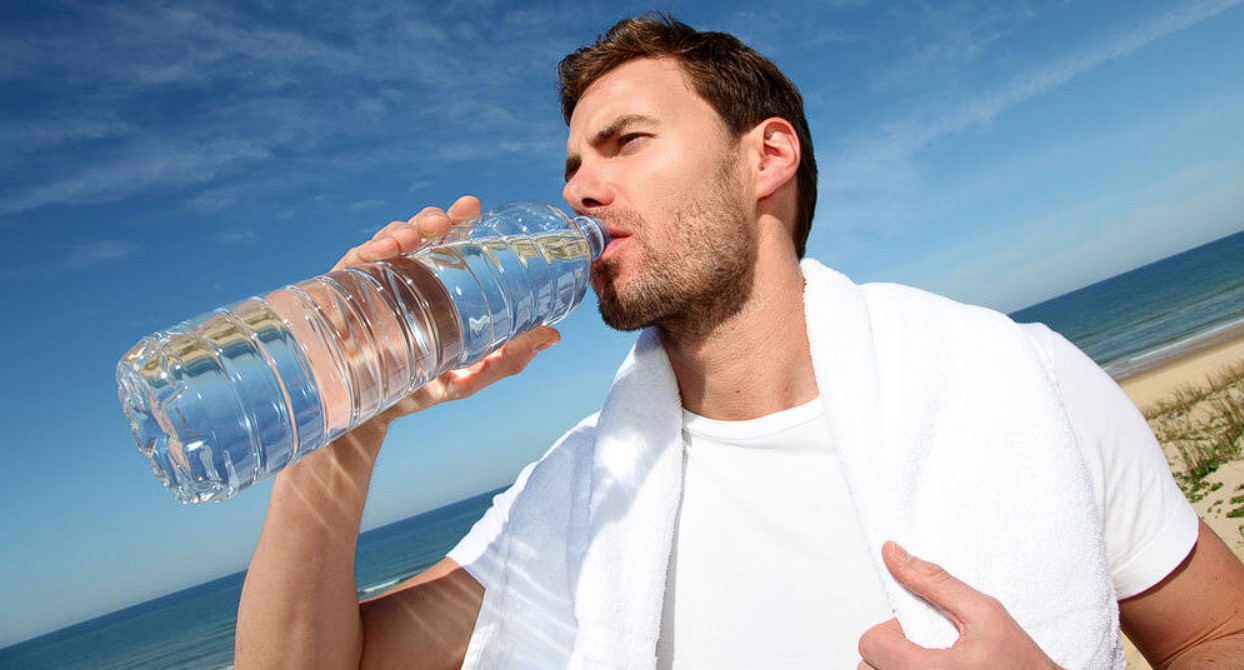
The causes of dehydration are diverse and are related to physical conditions, as well as to certain diseases or lifestyle. In particular, dehydration can occur due to insufficient water intake or prolonged fasting, especially when following unbalanced diets.
High ambient temperatures, physical activity that causes excessive sweating also significantly increase the risk of dehydration, as does heat or sunstroke.
Changes in climatic conditions, such as living in high altitude conditions, also affect fluid balance in the body. Food poisoning and intestinal infections accompanied by diarrhoea or vomiting are other common causes of fluid loss. High body temperature during illnesses also contributes to dehydration due to intense sweating.
Dehydration can be caused by endocrine disorders, diseases with high levels of urine production, heart and respiratory diseases that cause shortness of breath and increased moisture loss through breathing. Abundant discharge of phlegm from burns, as well as treatment with artificial lung ventilation, can also disrupt the water balance. Children, pregnant women and the elderly are particularly susceptible to dehydration.
Additional factors include the uncontrolled use of diuretics, large doses of aspirin, certain antidepressants and chemotherapy drugs. Dehydration can also be common in people who frequently experience hangovers, as alcohol reduces fluid levels in the body.
Symptoms
The first signs of a lack of water in the body are manifested as severe constant thirst, loss of appetite, fatigue, weakness, problems with concentration, drowsiness, combined with increased irritability, as well as signs of dry skin (regardless of type): dullness, grey tint, flaking, mild itching. Further development of dehydration and metabolic disorders is accompanied by the following symptoms:
- dull headache;
- dryness of the mucous membranes;
- cold, marbled skin with a reduced tone;
- stop lacrimation, sunken eyes;
- children cry without tears;
- decreased saliva production, whitish foamy saliva, swollen tongue, difficulty swallowing;
- decreased urinary frequency, reduced urine volume and intense darkening of the urine;
- constipation;
- heart rhythm disturbances, weakened pulse;
- prolongation of capillary filling time;
- hyperventilation, increased respiratory rate;
- acidosis;
- weight loss.
In case of severe dehydration, the skin becomes bluish, blood pressure and cerebrospinal fluid pressure decrease, seizures, brain volume reduction, brain haemorrhages (subdural), disorientation, confusion and loss of consciousness are possible.
Degrees of dehydration
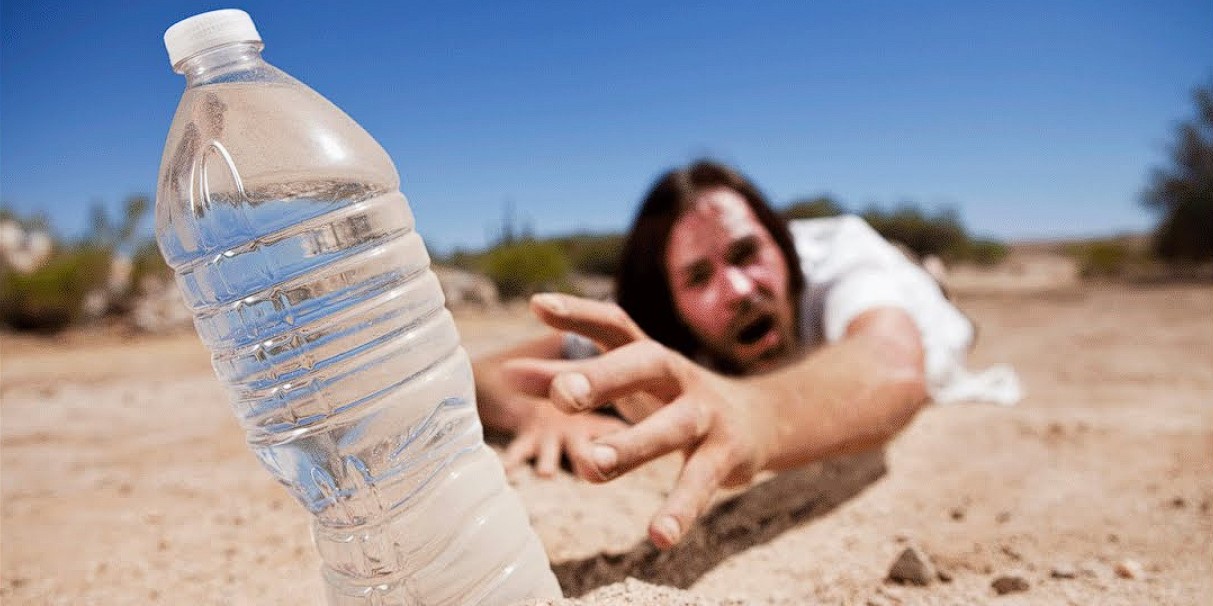
Degrees of dehydration are a classification of levels of water deficit in the body, each with its own unique symptoms and health risks.
From mild to severe, each degree of dehydration requires a different approach to treatment and can have serious consequences if left untreated.
In this section, we'll look at the details of each stage: from the initial signs and discomfort to serious life-threatening conditions, so you can understand when and how to act in a dehydration situation.
I degree
The first degree of dehydration is the initial stage of fluid deficiency and is characterised by a deficit of 1 to 2 litres of water. At this stage, the body begins to show the first signs of dehydration, which indicate the need to urgently replenish water reserves.
The main symptom that signals the first degree of dehydration is a pronounced feeling of thirst. A person may feel a constant need to drink as the body tries to compensate for the lost fluid. This is a natural reaction that indicates that the body needs water to function properly.
An additional symptom that occurs at this stage is oliguria, which is a decrease in urine volume during urination. This phenomenon is due to the fact that the body tries to preserve the remaining water by concentrating the urine. As a result, the urine becomes darker and more concentrated, which is another indication of dehydration.
The first degree of dehydration can be caused by various factors, such as insufficient fluid intake, hot weather, physical exertion, and some diseases that are accompanied by fluid loss, such as diarrhoea or vomiting. It is important to pay attention to these signs and take steps to replenish water reserves.
Usually, at this stage, it is sufficient to increase fluid intake by drinking pure water, herbal teas or special hydration solutions. If dehydration is detected and treated in a timely manner, the body will quickly restore its functions and no serious complications will arise. However, if the symptoms are ignored, dehydration can progress to more severe degrees, leading to serious health consequences. Therefore, it is important to be attentive to your body's signals and respond to them in a timely manner.
II degree
The second degree of dehydration is a more serious condition, characterised by a fluid deficit of 4 to 5 litres. At this stage, the body shows pronounced signs of water deficiency that require an urgent response.
The main symptom accompanying the second degree of dehydration is a strong feeling of thirst. The person begins to feel the need for fluids even more intensely as the body tries to compensate for the losses. The thirst that occurs at this stage may be accompanied by oliguria, i.e. a decrease in the volume of urine excreted from the body. This indicates that the kidneys are trying to conserve water, and the urine becomes even more concentrated.
Additional symptoms that indicate dehydration level II are dry skin, mucous membranes and tongue. The skin may look dull, lose its elasticity, and the mucous membranes of the mouth may become dry and crack. This indicates that the body is suffering from insufficient hydration.
General weakness is another important symptom that occurs at this stage. A person may feel tired, have low energy levels, and have difficulty performing normal physical and mental tasks. This is due to metabolic disorders and a decrease in the body's functional activity due to a lack of water.
Fluid deficit at this level can be caused by various factors, such as hot weather, intense physical activity or illnesses accompanied by fluid loss. It is important to respond to these symptoms in time, because the second degree of dehydration requires urgent treatment, which consists of a significant increase in water intake and, in some cases, the use of electrolyte solutions to restore the balance in the body. If left untreated, dehydration can progress, leading to serious complications and threatening health.
III degree
The third degree of dehydration is a critical condition characterised by a fluid deficit of 7 to 8 litres. At this stage, the body suffers serious consequences of water deficiency, which requires urgent medical intervention.
One of the most significant symptoms that manifest themselves at this stage is confusion. The person may feel confused, lose orientation in space and time, and have difficulty holding a normal conversation. This is due to impaired circulation and reduced oxygen supply to the brain caused by a significant fluid deficit.
Also at this stage, a decrease in blood pressure is observed, accompanied by an increase in pulse pressure. This means that the heart begins to work harder, trying to provide organs and tissues with the necessary amount of blood. The situation can lead to a shock state, when the body is unable to maintain adequate blood circulation, which is life-threatening.
Dehydration at this level is extremely dangerous and requires immediate medical attention. Urgent administration of fluids, both intravenously and orally, is critical to restore hydration. Failure to respond quickly can lead to severe complications such as kidney failure, cardiac disorders and even death.
In case of suspected third degree dehydration, it is important to immediately consult a doctor or call an ambulance to prevent serious consequences and save the patient's life.
Dehydration among the military
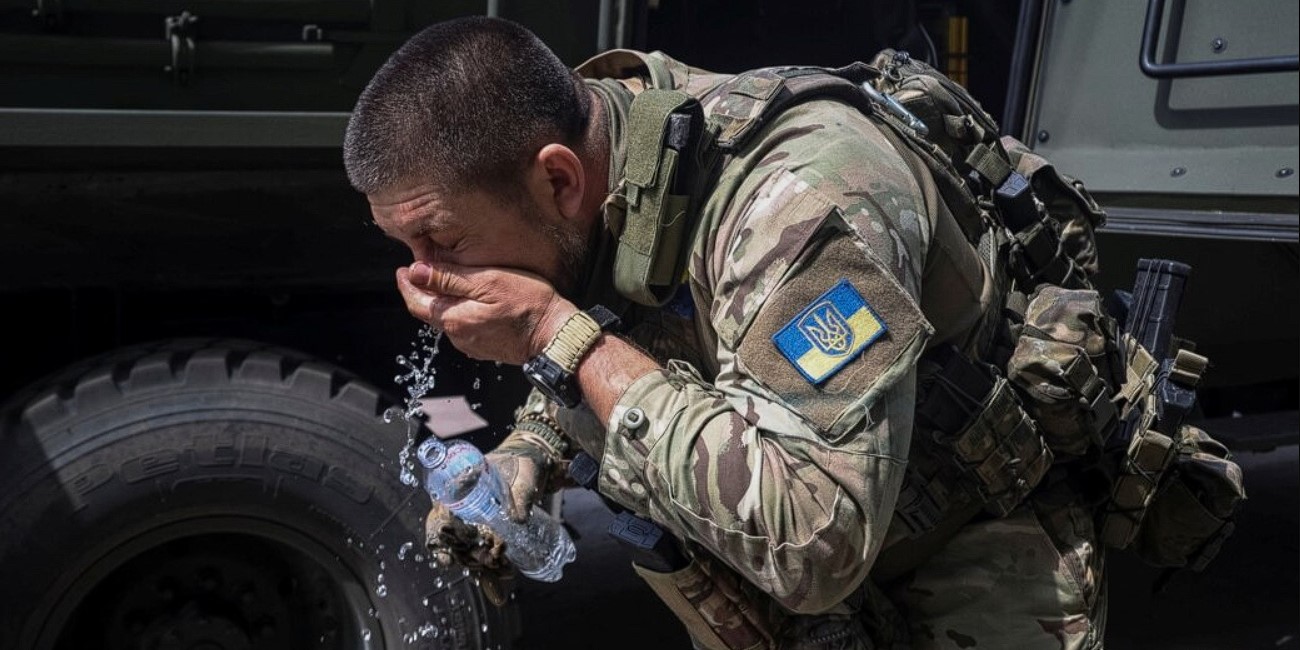
In wartime, shortages of drinking water can be a serious problem. Therefore, military personnel should stockpile water in advance whenever possible. If access to clean drinking water is limited, it is recommended to use alternative sources, such as water from pump rooms, columns, wells, underground sources, as well as rainwater or running water. However, such water should be boiled for 5–10 minutes before use to destroy potentially dangerous microorganisms.
Soldiers should always carry drinking water with them, both in shelters and on the move. If you have to stay without access to drinking water for a long time, you should focus on minimising fluid loss by avoiding excessive sweating and tearing. It is important to remember that drinking untreated water can increase the risk of poisoning, which can be fatal in a combat situation.
At the earliest opportunity, it is necessary to gradually restore the body's water balance. Neglecting this process can lead to serious health consequences, so the military must be aware of the importance of hydration and be able to respond quickly to its decline.
First aid for dehydration in extreme conditions
Unfortunately, in extreme conditions, the only reliable way to prevent or slow down dehydration is to find and drink water. If you have access to seawater, remember to drink only small amounts - about one sip at a time, no more than once an hour - as it can make dehydration worse.
If you have cloudy water, you need to clean and disinfect it in as many ways as possible. Purification methods include settling, filtering and boiling. Boiling, by the way, can even be carried out with the help of antiseptic plants that have disinfectant properties.
Rainwater or morning dew can also be an important source of fluids, and should be collected whenever possible. If you find yourself in a winter environment, you can get water by melting snow or ice. However, remember that to get water effectively, snow or ice should be melted first, not eaten, as eating large amounts of ice or snow can cause your body temperature to drop.
If signs of dehydration are detected, it is important to act quickly to provide the body with enough fluids to avoid serious health consequences.
The consequences of dehydration
Dehydration is a serious medical problem that can lead to numerous negative health consequences. When the body loses more fluid than it receives, it can disrupt its normal functioning, which in turn affects all systems. The consequences of dehydration depend on its degree and duration, but can generally include:
- Electrolyte imbalance: Water loss is accompanied by the loss of important electrolytes such as sodium, potassium and chlorine. This can lead to serious disorders, including muscle cramps, weakness and heart rhythm problems.
- Reduced blood volume: Fluid deficiency can cause a decrease in blood volume, which makes it difficult for normal circulation. This can lead to low blood pressure, dizziness and, in severe cases, shock.
- Impaired kidney function: The kidneys are the main organs responsible for maintaining the body's water balance. Dehydration can lead to a decrease in kidney function, which increases the risk of kidney failure.
- Exacerbation of chronic diseases: In people with pre-existing chronic conditions, such as diabetes or cardiovascular disease, dehydration can cause complications and worsen their overall condition.
- Impaired cognitive function: Even mild dehydration can affect concentration, memory and overall cognitive function. People may experience confusion, absent-mindedness, increased irritability and anxiety.
- Serious neurological consequences: Severe dehydration can lead to serious neurological complications, including seizures, coma, and even death.
- Body weight loss: Fluid deficiency can cause sudden weight loss, which can also have a negative impact on overall health.
- Changes in the skin: Dehydration affects the skin, making it dry, dull and vulnerable to cracking.
Given these potential consequences, it is important to take timely action to prevent dehydration and restore the body's water balance. Regular fluid intake, especially in conditions of increased physical activity or extreme temperatures, is critical to maintaining the body's health and function.
Conclusion
The most effective way to prevent dehydration is to monitor your fluid and pure water intake on a daily basis. It is important to calculate the amount of fluid needed, taking into account age, weight, lifestyle and other factors that can affect moisture loss.
During training, prolonged or intense physical activity, and in the elderly, sports isotonic drinks and gels can be useful to help avoid dehydration.
